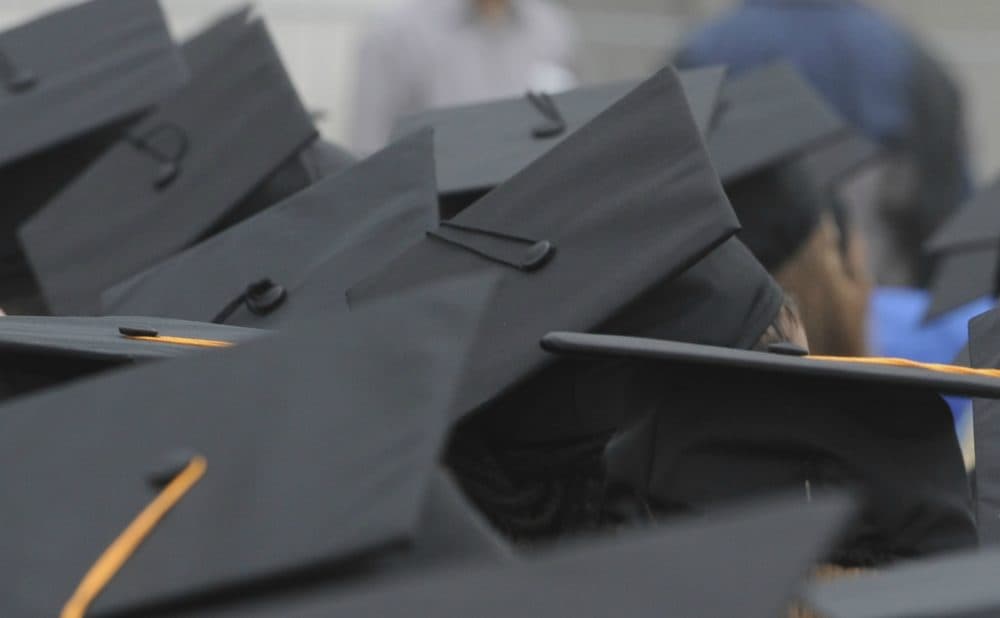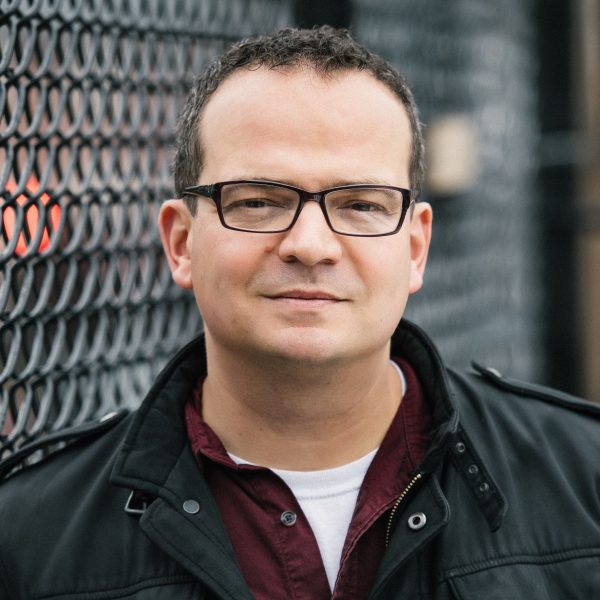Advertisement
commentary
What More Could I Have Done For My Student, 'Vulnerable To The Slightest Of Breezes'?

My walkie-talkie squawks. Somebody is here to see me down in the main office. I arrive, breathless from the stairs, and I see a tall young black man with unkempt hair, mismatched clothes and a shy smile. It is the smile I recognize: Jamal.
“Hey Mr. Stu,” he says. “Can you help me get a job?”
At his graduation two years ago, Jamal gave me that same smile, along with a firm handshake, after he strode across the stage to receive our school’s humanitarian award. As class president, he used that smile in student government meetings to get a group of ornery teenagers to consensus. At prom, he closed his eyes as he slow danced with his longtime girlfriend, ignoring their friends framing shots for Instagram. Later, that smile was wide when he showed me his acceptance letter to UMass, saying now he was definitely going to be an engineer.
“Of course,” I say. “It’s so good to see you, man. How have you been?”
“I’m doing better now,” he says. “But nobody will hire me.”
I’ve heard Jamal is struggling, that he dropped out of college. A colleague saw him on Dorchester Avenue early one morning, disheveled, clutching a full backpack. I hate to say it, the colleague said, but Jamal’s a bum. I hadn’t wanted to believe the stories, but seeing him now, this generous and hard-working kid, coming back to his high school like this, makes me want to weep. I hold it together, though, telling myself this isn’t about me. This is about a kid who needs help.
“You have a resume?” I ask.
“Sort of.”
I know how differently all this would play out if he were a white kid from the suburbs.
Back in my office, we get to work. His sort-of resume is a mess, so we start with bolding the headings and fixing the margins, centering his name and email. There is no street address listed, and I don’t ask. Over the past two years, Jamal has held three different jobs: retail, warehouse, food service. For one position he has written, I did everything they told me without talking back. We change it to, I completed a wide range of tasks in a professional manner. I tell him to add an 'honors' section, that he should mention he was class president. He nods, types. I remind him about the humanitarian award, which he forgot.
Slowly, he begins to loosen up and smile a little, and then he begins to talk. In pieces, the story comes out: As soon as he started college, his girlfriend, whom he dated all through high school, broke up with him. Not long after that, he witnessed a friend get stabbed. This haunted him, and he started drinking, stopped attending class. He failed everything his first semester and had a breakdown, decided to take a leave of absence. He tells me he’s getting treated now for depression. He wants to go back to school, he says. But first, he just needs a job.
Advertisement
I know how differently all this would play out if he were a white kid from the suburbs. I think about my own freshman year of college, about all the dumb things my friends and I did, intoxicated with the first taste of freedom. Plenty had problems with drinking and skipping classes, and anybody with high school sweethearts broke up by October. A few struggled with depression. But we were never in any real danger; there were teams of academic coaches and therapists, allies to make discreet calls to professors and deans. We thought we were so independent, walking the high wire on our own, but the whole time we were protected by the invisible safety net of privilege.
We thought we were so independent, walking the high wire on our own, but the whole time we were protected by the invisible safety net of privilege.
Unlike Jamal, teetering, vulnerable to the slightest of breezes. Working class people of color aren’t afforded the luxury of youthful mistakes. And for this young man, the danger is all too real; seeing a friend get stabbed was not something I ever had to even imagine, but he tells me this isn’t the first of his friends to die. This difference points to the subtler, more commonplace form of the inequality on display in the recent college admissions scandal, where rich parents gamed the system to get their children into elite colleges, but the same underlying power dynamics are at play.
I don’t know how to fix any of this, but I do know how to fix a resume. When we finish, I print off 10 copies and walk with him to the guidance counselor, who tells him that a restaurant in the new luxury condo complex by Ashmont has a help-wanted sign in the window. I introduce him to our new college advisor, who tells him he needs to fill out a financial aid form before returning to school; come back next week and I’ll help you. Jamal agrees. Finally, I take him to the woman who runs our after-school program. I’d like to introduce you to one of our graduates, I tell her. A responsible young man; do you know he was class president? He’s looking for a job, do you have anything? She looks at Jamal uncertainly, and then he flashes her the old shy smile, and she smiles back, and I want to believe this will be enough, that he will be okay.
I return to my office, trying to remember my to-do list, but I can’t concentrate. The question I keep asking myself is what I could have done better to prepare Jamal for the world outside these walls. I see now that I was so focused on getting him across the stage, so busy celebrating his college acceptance letter — his ticket to a foreign country — that I hadn’t given him the tools he needed to survive once he got there.
And then my thoughts circle back to the college admissions scandal. Considering these two realities side by side, how the affluent bribe SAT proctors and admissions teams while students like Jamal make it through sheer hustle only to be brought down by anything less than perfection, I see laid bare the myth of the meritocracy, that dangerous lie which gives the privileged permission to ignore the weight of history and race and class, to feel as though we’ve hit a home run when we were born on third base.
These are deeply rooted structural problems without simple solutions, but it starts, I think, with this acknowledgment: We need to do better. I need to do better. Yes, this is the story of a kid who needs help, but it isn’t enough to fix the margins of his resume, not when it is the world around him that is broken. Jamal’s story is heartbreaking, but this young man doesn’t need our pity. It would be an act of privilege to weep when there is so much work to be done.
This segment aired on April 29, 2019.
